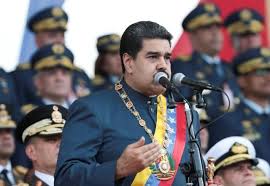How Venezuela’s Economic Meltdown Has Hit Pensioners Where It Hurts the Most

Venezuela’s government has begun making pension payments in its cryptocurrency, the Petro, instead of the sovereign bolivar, according to a report from Caracas Chronicles.
Retirees initially received Christmas bonus payments via the government Carnet de la Patria system this month in bolivars, but the amounts were quickly withdrawn and then resent in Petros. The Patria website exists outside of the traditional banking system.
“The government has been handing out bonuses to the pensioners through the carnet de la patria system for months now,” Carlos Hernandez wrote. “If you’re starving, it’s really hard to pass on a bonus that might be twice your monthly salary just by signing up in patria.org.ve. Making people dependent on government bonuses to survive, and making the webpage patria.org.ve the only way to access those bonuses is the perfect way to get them to ditch their official banking system.”
Many Venezuelans replying to an official notification on Twitter of the Petro conversion were confused or having difficulties converting the Petros to bolivars. A labor organizer said paying pensions in Petros violates Venezuelan law.
Back in August, Venezuelan President Nicolas Maduro chopped off five zeroes from the rapidly inflating currency. His idea was to anchor the new sovereign bolivar to the Petro, his country’s cryptocurrency that is supposedly tied to the price of oil, which the U.S. Treasury calls a scam.
Maduro said at the time that one Petro would be equal to 3,600 sovereign bolivars. The Petro cryptocurrency’s value was supposed to be equal in value to one barrel of oil. Currently the Petro is not on any major exchanges, making it worthless outside Venezuela, but its official website says one Petro is worth nearly $ 60. At the end of November, Maduro ordered the value of a Petro to be increased to 9,000 bolivars, along with a 150% increase in the minimum wage.
According to the official exchange rate, one U.S. dollar is worth 10 sovereign bolivars. The only people who have access to that rate are members of the government. On the black market, it will cost you 526 bolivars to get $ 1. Newsweek reported Venezuela’s inflation rate surpassed 1.3 million percent in November; the government told the IMF it was just 860% this year. The Venezuelan government has just submitted data to the IMF for the first time in a decade, and the organization is now reviewing the information.










